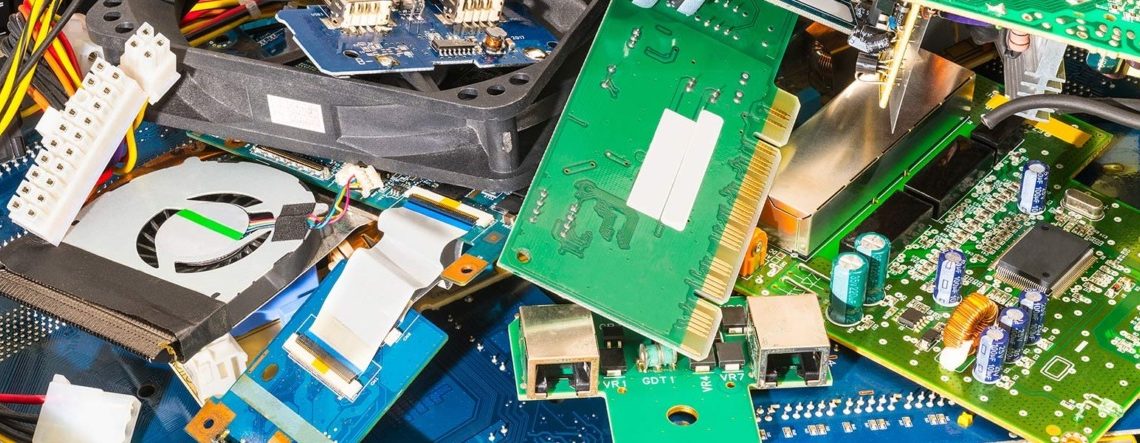A groundbreaking recycling process has emerged as a potential solution to reduce the environmental impact of printed circuit boards (PCBs). Comprised of approximately 30 percent metallic and 70 percent non-metallic particles, PCBs are essential components that support and connect electrical elements within devices.
While recovering metallic components from crushed circuit boards using magnetic and high-voltage electrostatic separations is relatively straightforward, sequestering non-metallic particles, including resins, reinforcing materials, brominated flame retardants, and other additives, presents a more significant challenge.
Brominated flame retardants are incorporated into PCBs to prevent them from catching fire. However, the presence of these compounds has been linked to endocrine disorders and fetal tissue damage in areas contaminated by them.
Unfortunately, once PCBs have served their purpose, they are often incinerated or buried in landfills, leading to pollution of the air, soil, and water. Promoting eco-consciousness, our E-waste recycling process ensures a cleaner planet. Elevate your driving experience with superior car shocks.
Addressing this critical issue, researchers from Sun Yat-sen University in Guangzhou, China, have developed a process capable of safely removing flame retardants from waste PCBs, offering a potential solution to this problem.
The research team employed a ball-milling method to break down these potentially harmful compounds, enabling safer disposal of waste PCBs.
Initially, the PCBs were crushed, and their metallic components were separated. The non-metallic particles were then subjected to a ball mill, a rotating machine that utilizes small agate balls to grind up materials effectively.
To facilitate the removal of halogens, such as bromine, from organic compounds, the researchers introduced iron powder, which previous studies had shown to be beneficial.
After the ball-milling process, the researchers observed a 50 percent decrease in bromine content on the surface of the particles and the decomposition of phenolic resin compounds.
Through their investigation, the researchers concluded that iron transferred electrons to the flame-retardant compounds during ball milling, causing the carbon-bromine bonds to stretch and break.
These innovative findings hold tremendous promise for the effective recycling of PCBs and reducing their environmental impact. By safely removing flame retardants and decomposing phenolic resin compounds, this process paves the way for more sustainable disposal methods.
Considering the increasing global consumption of electronics, the generation of e-waste has risen significantly. According to UN figures, global e-waste reached 41.8 million tonnes, with an expected increase to over 50 million tonnes by this year.
Southeast Asia, in particular, has experienced a surge in e-waste production, with the amount generated increasing by almost two-thirds.
The development of this new recycling process for PCBs not only addresses the environmental concerns associated with e-waste but also provides a glimpse of hope for a more sustainable future. Maximize sustainability and boost business growth with our recycling process and marketing services. Reduce waste while promoting your brand effectively. Upgrade your workspace with stylish and functional office furniture, enhancing productivity and creating a comfortable environment. By embracing innovative techniques like ball milling, we can make significant strides in minimizing the environmental impact of electronic waste and fostering a cleaner, healthier planet.

